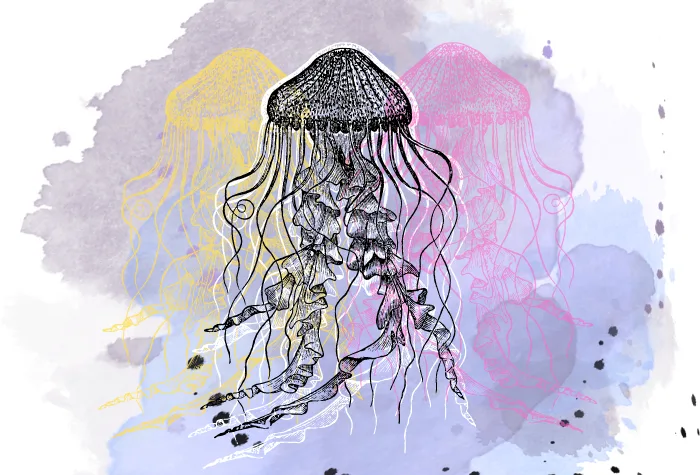
Experts encourage eating jellyfish to curb population explosion in Mediterranean
Eating jellyfish could alleviate stress on overfished species, experts say.
An explosion of jellyfish in the Mediterranean has chefs exploring new ways to turn the sea creatures into culinary delicacies, Times Malta reports.
Experts say overfishing and warming ocean temperatures are aiding the population boom.
The jellyfish explosion has caught the attention of Michelin-star chefs worldwide, Times Malta says, inspiring the creation of jellyfish-infused soups, caviars, and salads.
A team of experts has even published a jellyfish cookbook, complete with plating instructions.
Diners in several Asian countries regularly eat jellyfish, but the trend has yet to catch on in other parts of the world. Marine biologist and university professor Alan Deidun told Times Malta that could soon change.
“In 2015, a group of chefs walked around the Milan Expo with dishes of cooked jellyfish, asking people to taste it without telling them what it was. Around 90 per cent of people liked it and said they would order it again if it were on a restaurant menu, thinking that it was cuttlefish (sic),” Deidun told the publication.
“The chefs then repeated the experiment, but this time they told people that they were serving jellyfish. Half of them refused to even try it.
It’s not the jellyfish, it’s the mindset.”
SUSTAINABLE SEAFOOD
In 2020, a team of researchers at Queensland University wrote that jellyfish could become "Australia's new sustainable takeaway order," arguing this could take pressure off overfished species, like Atlantic cod.
HEALTH BENEFITS
In addition to the environmental benefits, advocates say jellyfish offer several health benefits. They are low in calories, high in protein, and are rich in omega-3 and omega-6 unsaturated fatty acids and collagen.
An estimated 25 to 30 per cent of known jellyfish species are considered edible.
Thumbnail: Custom by Cheryl Santa Maria. Made using graphical elements from Canva Pro.










